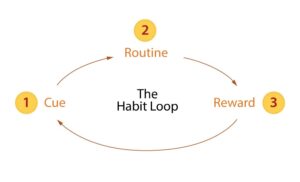How to Change Your Life in 2024
Every year 39 percent of Americans make New Year’s resolutions with the dream of something better for the year to come. January always marks a new start, a new beginning—this year things are going to be different.
The top resolutions people made in 2024 are:
- Save more money.
- Exercise more.
- Eat healthier.
- Spend more time with family and friends.
- Lose weight.
Who wouldn’t want to accomplish any of the life changing objectives mentioned above?

Many of us roll into the new year with the enthusiasm of Tigger. But when the energy and excitement of the ball drop wears off, most New Year’s resolutions fail to come to fruition.
The stark reality is 88 percent of people who make resolutions fail to accomplish them. In fact, most people give up on their New Year’s resolutions by Jan. 19. That’s what research conducted by fitness app Strava found as they tracked the activities of 800 million users.
Most resolutions fail because they involve unrealistic changes that disrupt people’s lifestyles. For instance, lots of folks have begun 2024 with a resolution to lose weight. That’s great, but how much weight in how much time, and how do you plan to lose the weight?
People typically answer that question with something like: “I’m going to go on the _______ diet and lose 30 pounds by Spring Break.” When the new year rolls in, the person making that resolution will go to the store and buy all the food they need for their new diet and wage a war against their metabolism and the poor eating habits they spent the past 40 years developing.
People who take this approach to weight loss fail, and they fail miserably. Diets have a long-term success rate of about 5 percent. To consider a diet successful, you have to keep the weight off more than 2 years. Anyone can lose 30 pounds, but hardly anyone keeps it off.
The reality is, two-thirds of people who go on a diet end up gaining back more weight than they lost. I believe this statistic is right on because Medicare, the largest health insurance company in America, conducted the study to see if they could recommend a specific diet. The conclusion of the study says, “there is little support for the notion that diets lead to lasting weight loss health benefits.”
Socrates made a great observation when he said, “Excessive action in one direction usually sets up a reaction in the opposite direction.” That’s what happens when we diet. The same thing happens with other kinds of life altering resolutions.
So, how do successful people change their lives? How do people lose weight and keep it off long-term? How do people become and stay healthier?
At Exercise Inc, we’ve been helping people lose weight and keep it off for more than 20 years. We’ve also helped people become healthier, get stronger, eliminate back pain, get off prescription meds and get back the life they had when they were younger.
We do this by coaching our clients to adopt a few simple habits that they can stick to over time. Changing your life is not as much about adopting new goals. It’s about changing your lifestyle. A lifestyle is a process, not an outcome. Because of this, all your energy should go into building better habits, not chasing better results.
Making small changes and sticking with them over time is the best recipe for achieving success at anything in life, especially improving your health. The best way to change your life is to slowly and deliberately adopt new routines and habits that will make you feel great about yourself.
Start small.
Pick a few good habits you are willing to stick with for rest of your life.
- Drink two cups of water as soon as you wake up every day.
- Eat two servings of fruit every day.
- at 4 vegetables every day.
- Get 30 minutes of physical activity every day.
- Lift weights once a week.
- Reduce stress – Volunteer somewhere on a monthly or weekly basis.
The best way to make new habits stick is to make them fun. Let’s say you want to start eating four servings of vegetables every day. That’s a great habit since most Americans only eat 1.5 servings of vegetables a day. A great way to make this fun would be to try a new vegetable every week for a year. That’s doable since there are over 1,000 different kinds of vegetables and 59 different vegetable types.
About 40% of the actions we take every day are habits that automatically happen with very little thought about what we are doing. Good or bad, habits determine who we are. Habits start as simple deliberate choices. You open the fridge on your way to bed one night and grab a snack. Before you know it, you open the fridge every night without thinking about it. That’s a habit—a bad one, that you’ll probably want to break.

In The Power of Habit, Charles Duhigg explains how habits work in our brain. More importantly, he reveals the process by which a habit becomes a habit. By using what he calls a Habit Loop, we can take control of the habits in our lives.
The Habit Loop acts sort of like a computer program consisting of three parts:
- According to Duhigg, a cue is “a trigger that tells your brain to go into automatic mode and which habit to use.” An example could be boredom, which might trigger you to eat a piece of chocolate.
- The routine is the activity that you perform almost automatically after you encounter a cue. A routine can be physical, mental, or emotional. An example is eating lunch when the clock strikes 12:00 every day, whether you feel hungry or not.
- The reward is what helps your brain figure out if a particular loop is worth remembering for the future. A reward can be anything, such as the feeling you get after a good cup of coffee or the totally different feeling you get after a great workout.
If you want to change something in your life in 2024, start by working to adopt some new habits. Let’s say you want to drink more water. Before you go to bed every night, put a 16-ounce water container on the kitchen counter. When you wake up in the morning, seeing the cup will remind you to drink water—the cue. Fill the cup and drink 16 ounces of water—the routine. Have your morning coffee after you drink your water—the reward. Starting this habit and sticking with it for a year will make you feel better and probably cause you to lose three or four pounds. Not bad for something that simple.
It takes about 66 days to form a new habit, so be patient and persistent. At Exercise Inc, we’ve helped hundreds of clients reach their health and fitness goals through our Simple 9© approach to developing the right habits. If you really want to change your life this year, our coaches are ready to help you. And the great thing about starting new habits—you can do it any time of the year.
Let us help you change your life in 2024.
Stay Strong,
Bo Railey

